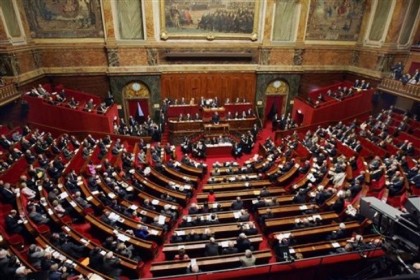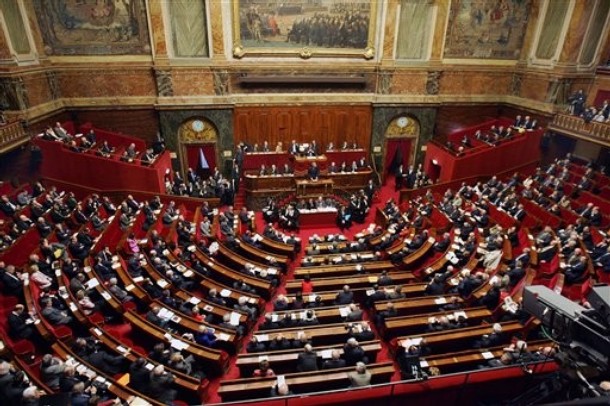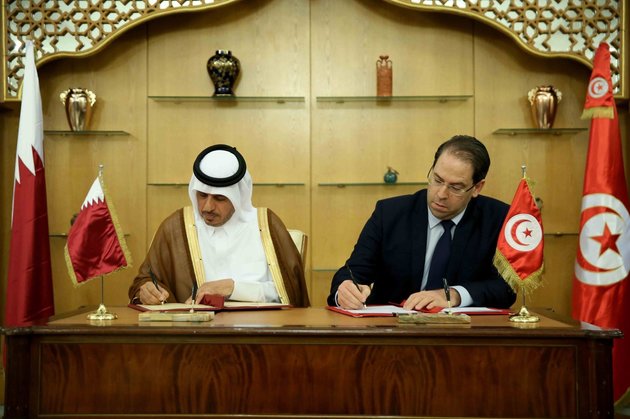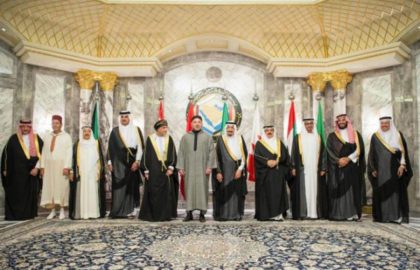 The French National Assembly adopted on Tuesday the protocol amending the Mutual Assistance Convention in criminal and legal matters signed between Morocco and France, signaling thereby the end of the diplomatic row that had lasted all through 2014 and putting back on track the two countries’ judicial and legal cooperation.
The French National Assembly adopted on Tuesday the protocol amending the Mutual Assistance Convention in criminal and legal matters signed between Morocco and France, signaling thereby the end of the diplomatic row that had lasted all through 2014 and putting back on track the two countries’ judicial and legal cooperation.
The protocol, signed in February 2015 in Rabat, is meant to promote a more sustainable and more efficient judicial cooperation between Morocco and France.
The bill, approved by the Socialist group, the Republicans, the IDU centrist group and leftist radicals, provides for enhanced exchange of information in criminal proceedings, including when it comes to misdeeds committed in either country by the nationals of one or the other country. Under the protocol, complaints in France against Moroccans will be “primarily” referred to Rabat or closed.
Presenting the draft on behalf of the French government, Annick Girardin, Minister of State Development and Francophonie, said the text reflects the two countries’ strong common political will and commitment to their relationship and friendship.
The text is “conform to the principles of the separation of powers,” she insisted to dispel the reservations of those who fear that the new protocol might call into question the independence of justice and universal jurisdiction of French courts.
She also underscored France’s close ties with Morocco that she described as “a pole of stability in a region torn by conflicts.”
Echoing her, Luc Chatel, President of the France-Morocco friendship group at the National Assembly, said “the protocol does not call into question the independence of the judiciary or the autonomy of magistrates who remain free in their decisions”.
“The Protocol provides for the improvement of information exchange between the French and Moroccan parties,” he said.”
Elisabeth Guigou, the president of the Foreign Affairs Committee in the French National Assembly on her part underlined that the text should “be seen as an act of trust… in the capacity of our two countries’ judicial institutions to dialogue in a spirit of mutual understanding.”
The objective is to achieve “a better management of justice and see to it that judicial cooperation is up to our cooperation in other areas,” said Elisabeth Guigou.
The text had been adopted by the Foreign Affairs Committee on June 16 and was principally backed by the Socialist and Republican Mps eager to restore the soonest possible the “exceptional relations that have always existed” between the two countries, as put by Elisabeth Guigou, the Committee Chairwoman.
Mrs Guigou had then explained that the protocol was examined in a fast track procedure to respond to “the urgency of the context.”
“We better not act as arrogant censors, but should rather support Morocco’s tireless efforts,” she had said, expressing backing to the resumption of judicial cooperation between Paris and Rabat.
The protocol will be submitted to the Senate vote in July.
Morocco had suspended its judicial and legal cooperation in February 2014 to protest a French magistrate’s attempt to question Abdellatif Hammouchi, Director of the DGST, Direction Générale de la surveillance du territoire, the Moroccan domestic intelligence service. Hammouchi was summoned to testify in alleged torture-related cases while he was visiting Paris to attend a meeting with French officials.
It was only in January this year that the two countries’ Ministers of Justice signed an accord enabling the immediate resumption of Moroccan-French judicial cooperation.
A month later, France announced that it will award Mr. Hammouchi the Legion of Honor Medal, in recognition of his department’s efforts in the fight against organized crime and terrorism.
Many observers explained the move as an apology for the French magistrate’s blunder.



